Two weeks ago, news broke that actor Kaitlyn Dever was joining the cast for the second season of HBO’s The Last Of Us TV series—which is still floating along without a release date, with “some time in 2025” the best anybody in TV land can guess. But despite that mild ambiguity, Dever’s casting kicked off a small firestorm of speculation, because it was revealed that she’d be playing a character named Abby Anderson when she joined the Emmy-winning video-game adaptation’s second season—which means The Last Of Us is almost certainly diving whole hog into the story of 2020’s The Last Of Us Part II. And that means things are about to get … messy.
[Editor’s note: This article contains spoilers for 2020 video gameThe Last Of Us Part II—and, likely, for at least some of the plot elements of the still-filming second season of HBO’s The Last Of UsTV show.]
Because while the critical consensus on Part II has mostly calmed down in the four years since its release—give or take some moderate consternation lately at the fact that Sony has already rolled out a “remastered” version of the hardly retro game, out last week–the game was something of a lightning rod when it first came out. Some of that wasn’t developer Naughty Dog’s fault. (A high-profile leak from the game’s development, showcasing several cutscenes and character models, fired up the kinds of chuds who get angry when female video-game characters aren’t “feminine” enough, to pick one of the more vitriolic examples.) But some of it was in direct to response to the game’s big narrative swings, which were, depending on who you asked, either “bold” or “super-aggressive and kind of manipulative.”
Many of which, we have to assume, will now be inherited by its TV adaptation: Excepting its critically heralded third episode, Craig Mazin’s adaptation of the first game into the show’s first season was almost overwhelmingly faithful–down to the season’s final scene almost exactly mimicking both the dialogue, and the staging, of the game’s famous ending. With game series creative director Neil Druckmann on board for the second season, as he was for the first, it would be shocking to see the series diverge more than a few inches from established canon.
What does that all mean? A few things—all of which could make The Last Of Us’ second season a very weird run of TV.
Editor’s note: Big ol’ spoilers for The Last of Us Part II follow. If you haven’t played the game and don’t want the show’s second season spoiled for you, hit the back button now. — David.

The Pedro Pascal “issue”
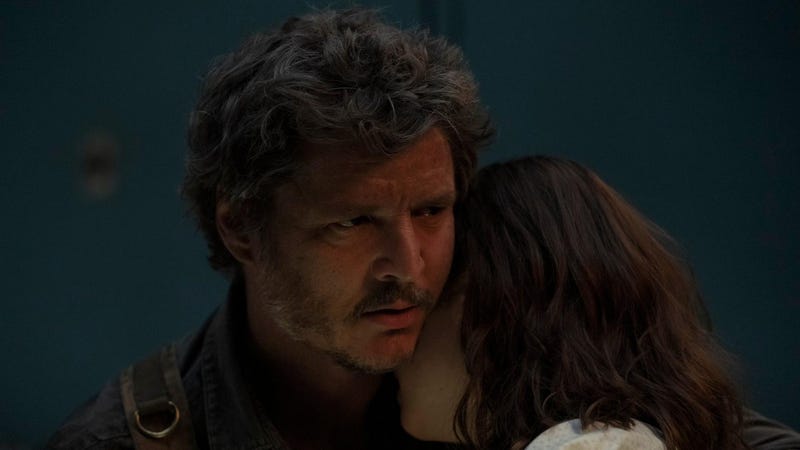
Anyone hoping to avoid spoilers for either the game series, or the show’s next season, should hop off this train now, because there’s really no way to talk about either without addressing the fungus-encrusted elephant in the room: protagonist Joel Miller’s sudden death, an hour or so into The Last Of Us Part II.
Pedro Pascal, who plays Joel on the show, has, understandably, hedged a bit when asked about this plot element–because how could he not? (Nobody wants the HBO Spoiler Squad on their ass.) But The Last Of Us Part II really doesn’t function as a story without it: Joel’s sudden death, at the hands of a group of survivors who come to the almost ludicrously idyllic community where he and Ellie (Bella Ramsay) have been living out their post-apocalypse, is rooted in both the aftermath of the first game and the narrative obsessions of the second. Everything The Last Of Us Part II wants to say about humanity–and it wants to say a lot—grows out of that early moment of sudden, shocking brutality, one moment of horrifying trauma birthed directly from another.
This was controversial, to say the least, in the games, where Joel was a beloved character played by well-liked voice actor Troy Baker. Applying it to a rising/risen star like Pascal—who did so much work to build a beautiful, broken human out of some fairly stock parts with his performance as Joel in the show’s first season–might be even more disruptive. Pascal and Ramsay both came up through Game Of Thrones, of course, so neither is unfamiliar with being on a series that jettisoned its “star” at a critical early point. But seeing the show’s most marketable star go the way of Logan Roy one episode into its new season is still likely to leave fans a bit discombobulated.
The absolute brutality of Ellie Williams
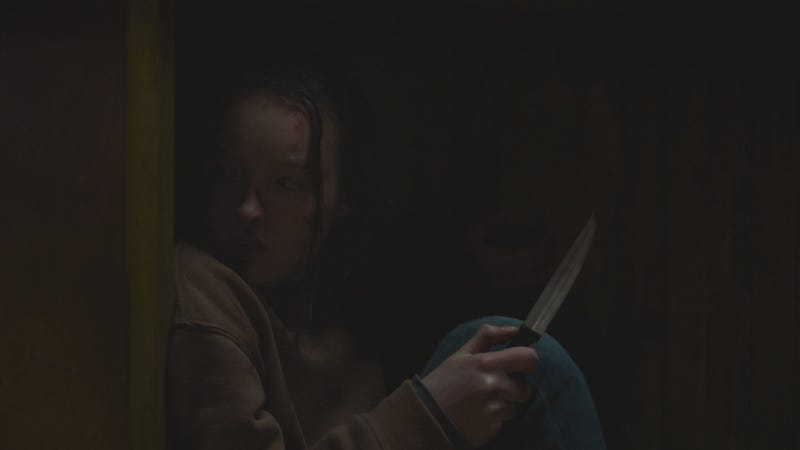
If the above paragraphs didn’t clue you in, The Last Of Us Part II is an aggressively grim game. Even its genuine moments of love or levity come with the unavoidable knowledge that something truly awful is right around the corner—and rarely in the form of something as simple as a rampaging fungus monster. That goes doubly true for the character of Ellie, who came of age in the first game/season—and who spends the second game having her last few shreds of innocence sliced off of her piece by piece.
And really, we’re looking forward to seeing what Ramsay, who was excellent in the first season, will do with this material, as Ellie becomes harder and harder, and harder and harder to root for, the further into her need for vengeance she descends. But it’s going to be a lot for audiences, even by the standards of HBO: We’ll be curious to see if the TV show stays true to the moment that would, in a less ugly narrative, be Ellie’s rock bottom—i.e., the confrontation with Mel, for game players—or if it’ll back away from quite that level of character-alienating horror. But either way, we’ll likely depart the show’s second season with very little idea of who, if anyone, we want to see getting what they want out of this broken and miserable world.
A question of perspective
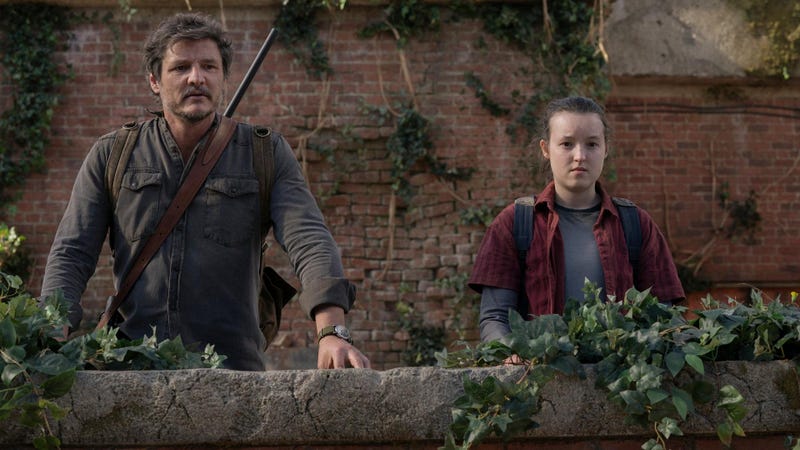
There’s also a question of structure to be addressed here, requiring us to spoil The Last Of Us Part II’s other big twist: the fact that only about half of the game is played from Ellie’s perspective, with the game rewinding at a major turning point to show what its three violent days in Seattle have been like for Joel’s killer, Abby.
On the one hand, this might actually be easier for the TV show to handle than the game; one of The Last Of Us franchise’s big tricks is adapting techniques from film and media, where they’re less familiar, to the medium of games, and this kind of perspective flip is far closer to old hat for television. That being said, the parts of the game where you play as Abby constitute a huge portion of the game, introducing new characters, stories, motivations, and problems, all to drill in for players that she’s just as much a person, a “protagonist,” as Ellie herself. A 24-hour-long video game can take that kind of time to make its points—a nine-hour TV series, not so much. It’s key to Druckmann’s vision of The Last Of Us Part II that Abby feel as “real” to the player/viewer as Joel or Ellie did. Building that kind of identification, without feeling repetitive or digressive, is going to be a fascinating struggle for the show to handle in a fraction of the time.
Is there room for another “Long, Long Time”?
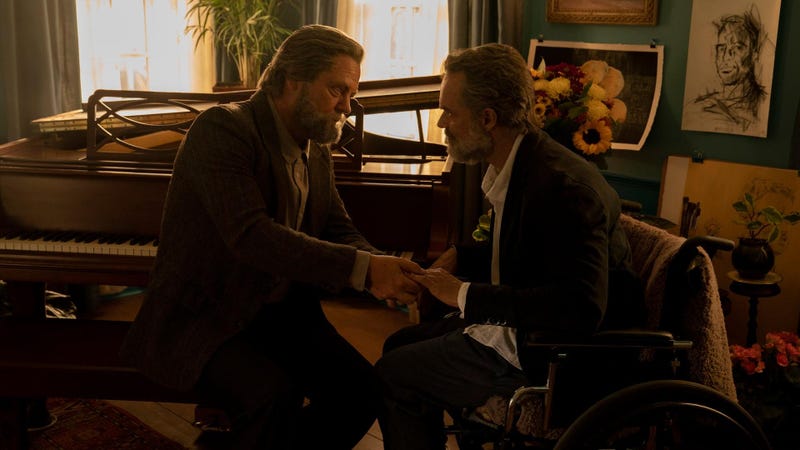
As we noted above, the first season of The Last Of Us deviated from the game’s plot in only one serious regard—and was rewarded powerfully for it, with critics and viewers alike holding up that digression point, “Long, Long Time” as a series highlight. With Nick Offerman and Murray Bartlett moving mountains to flesh out characters who were, in the game, an asshole and a corpse, respectively, the episode served as a necessary antidote to the grimness of the rest of the season, reminding viewers that there was still the possibility of life, even for “the last of us.”
Mazin, and writer Peter Hoar, could fit that material into the series in part because they were adapting a largely episodic narrative: The first Last Of Us plays out as a series of vignettes as much as it is a more cohesive story, and it was fairly simple to swap out the running and shooting of the game’s “Bill’s Town” segment for something with considerably more heart. Just as importantly, it demonstrated at least some justification for the entire show, dialing into quieter, more human moments, at a distance from Joel and Ellie’s story.
The Last Of Us Part II is a much tighter narrative ship, though, with a big chunk of its power coming from the way it buries you in first Ellie and then Abby’s head. And so it remains to be seen where Mazin and his team can find room for a bit of light to shine through. (Even if you zoom out of the Ellie-Abby conflict, the game’s background plot is about a brutal inter-clan war waged between military despots on the one hand and transphobic religious zealots on the other; there’s not a lot of room for gentler shading there.) We suspect that the Abby material will have to stand in for that kind of digression, but her story is so married and mirrored to Ellie’s that it’ll be difficult to get meaningful breathing room out of it.
All that being said: It’s worth stepping back and remembering that we’re talking about a TV show that hasn’t even been filmed at this point, let alone aired. Speculation can only go so far before it just becomes fortune-telling and just as useful. But The Last Of Us’ nature as an adaptation—and one especially beholden to its source material—invites these kinds of questions. The Last Of Us Part II landed like a bomb in 2020, detonating video-game discourse for months around it. We can only imagine what its adaptation to television will do when it arrives some time next year.
This story originally appeared on The A.V. Club.
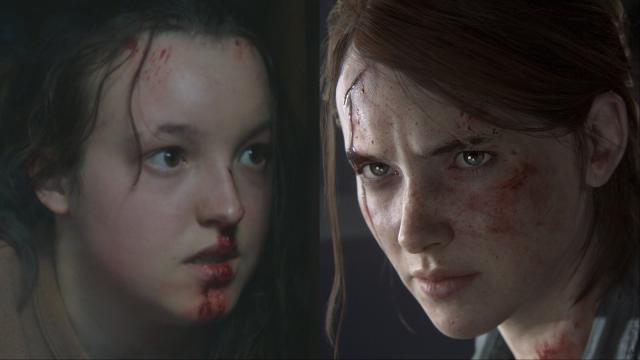
Leave a Reply